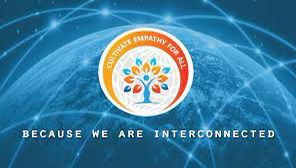According to Nilang Gor of Cultivate Empathy for All, there exists a highly interconnected ecosystems which he can discuss a few primary ones. The actions of human beings directly affect the well-being of animals, plants, environments, and other humans. Studies show that adopting a plant-based diet and supporting plant-based systems can have a ripple effect that will make the planet a healthier and more equitable place to live.
The Current Unsustainable System
Animal agriculture negatively impacts the environment, public health, and even social and racial equity. With 77% of agricultural land being used for meat and dairy production, the negative impact is evident. However, given the massive amount of space non-plant-based systems require, livestock only produces 18-37% of the world’s calorie and protein supply. In the United States, 41% of the landmass used for just feeding livestock.
Animal-based agriculture also lends itself to harmful greenhouse gas (GHG) emissions, increased water consumption, and the destruction of habitats to feed livestock. In fact, animal agriculture accounts for nearly 60% of emissions associated with food production. These studies show that our current system is unsustainable and detrimental to our planet. The solution is creating sustainable plant-based systems that are adaptable to the population at large.
The Positives Behind a Plant-Based System
According to a University of Michigan study, a 50% plant-based shift that focuses on a 90% reduction in beef can reduce 51% of U.S. food emissions by 2030. Plant-based systems also remove atmospheric carbon, reduce water consumption, use fewer natural resources, and improve equity issues.

Figure 1: U.S. dietary scenarios for GHG reduction by 2030
In developed countries like the United States, where meat consumption (per capita) is higher, the association between meat-based diets and chronic illnesses contributes to $3.8 trillion in healthcare costs. Vegetarians, vegans, and pescatarians (those who eat a plant-based diet but will indulge in fish) experience lower rates of heart disease, Type 2 diabetes, and some can-cers like colorectal can-cer.
Creating Sustainability
The more people who embrace a plant-based diet, the more acceptable sustainable plant-based systems become. According to a Gallup poll, 10% of Americans between the ages of 18 and 49 identify as vegans/vegetarians. However small that number may seem now, a Yale Program on Climate Change Communication states that more than 60% of Americans are willing to choose more plant-based options if given a choice.
Creating Real Change
How do we create a sustainable plant-based system, one that promotes public health and makes the world a better place for future generations? Once an individual makes the necessary lifestyle change to a plant-based diet, becoming involved in the community and engaging in advocacy for institutional change is crucial to getting to the root of the problem rather than treating the symptoms. In doing so, we may be able to slow or even stop the detrimental effects animal agriculture has on our environment, health, and society.
To learn more about how you can help become an advocate for institutional change, visit Cultivate Empathy for All.


